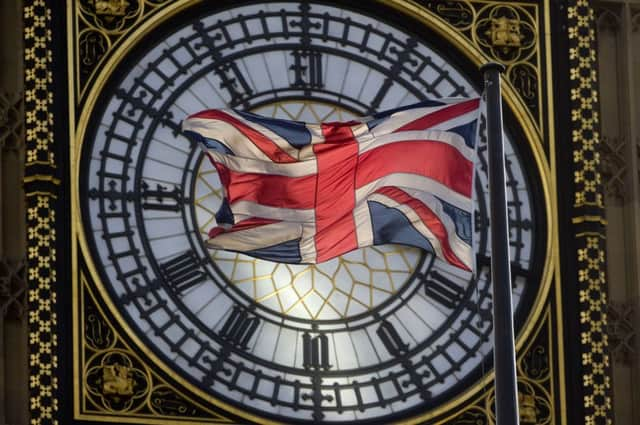Constitutional questions remain


Voters in Scotland have said No to the question “Should Scotland be an independent country?”, but that does not mean an end to constitutional wranglings. Attention has already turned to the further devolution of powers to the Scottish Parliament.
The main pro-Union parties produced proposals in the spring for devolving further powers in the event of a No vote. These focused chiefly on tax and welfare powers, though there were also suggestions for other reforms, including giving local government greater autonomy, reforming the Scottish Parliament’s internal procedures and extending control over administration and enforcement in areas such as health and safety and employment disputes.
Advertisement
Hide AdAdvertisement
Hide AdSince then, and in particular over the final few weeks of the referendum campaign, they have produced significantly more information on the process for delivering on those proposals. Gordon Brown set out a timetable for agreeing more powers, including: publication of a “command paper” setting out agreed proposals by the end of October; a white paper by the end of November, and draft legislation in January. David Cameron, Ed Miliband and Nick Clegg then published their now-famous “vow” committing to that timetable, and last Monday placed a motion before parliament to that effect.
Lord Smith of Kelvin has been tasked with forming a consensus within that timetable on what powers should be delivered. He has conceded that this might not be easy – there were areas of overlap among the Unionist parties’ proposals but no consensus, and now that independence is off the table, the SNP and Greens are also contributing to the process. The most likely outcome therefore might be that the draft legislation published in January will reflect whatever consensus can be reached in the time available, to be followed by commitments to enact that legislation in party manifestos for May’s general election.
There will certainly not be enough time to actually introduce and enact legislation before parliament is dissolved for that election at the end of March. Something of a stramash arose almost immediately post-referendum on whether a second reading of the legislation had been promised for 27 March but, given that is the final sitting day of the current parliament, any Bill would be immediately “guillotined” and have to start again from scratch in the new parliament anyway.
There are, of course, other means by which further powers could be delivered. The Scotland Act 1998 allows for the boundaries of devolution to be revised by way of a Section 30 order. The Scotland Act 2012 devolved new tax powers, but also allows for further taxes to be devolved by order without requiring primary legislation.
There are, nevertheless, indications that a new Scotland Bill would be introduced immediately after the election, notwithstanding the Prime Minister’s initial comments that questions over how English laws are enacted should be dealt with “in tandem with” further devolution for Scotland. Mr Cameron may simply have in mind that legislation to resolve that issue should be enacted at the same time as legislation for more devolution (ie they should reach their end-points together). If the Conservatives win the general election they will be in a position to deliver that. If not, their view on linking the two issues will not matter, as delivering more devolution will be the responsibility of the winning party. There is therefore no reason in principle why further devolution to Scotland need be conditional on the parties also reaching consensus on “the English question”.
What is not clear is whether the parties will treat Lord Smith’s process as conclusive. Assuming there will be some issues on which consensus will not be reached, it would be open to each party to include additional proposals in their manifestos. In particular, the Conservatives and Lib Dems may be unlikely to want to forego the electoral opportunity of highlighting where they have gone further than Labour and the SNP and Greens may also want to offer Scottish voters more powers than are likely to come out of Lord Smith’s process. Furthermore, as with the Scotland Act 2012, the Scottish Parliament’s consent will be sought on any new legislation.
Significant questions therefore remain. It is clear that the No vote is not the end of the debate on Scotland’s constitutional future, but it remains to be seen whether (with apologies to Churchill) Lord Smith’s process is the beginning of the end or just the end of the beginning
• Charles Livingstone is an associate in the public law & regulatory team of Brodies LLP
SEE ALSO